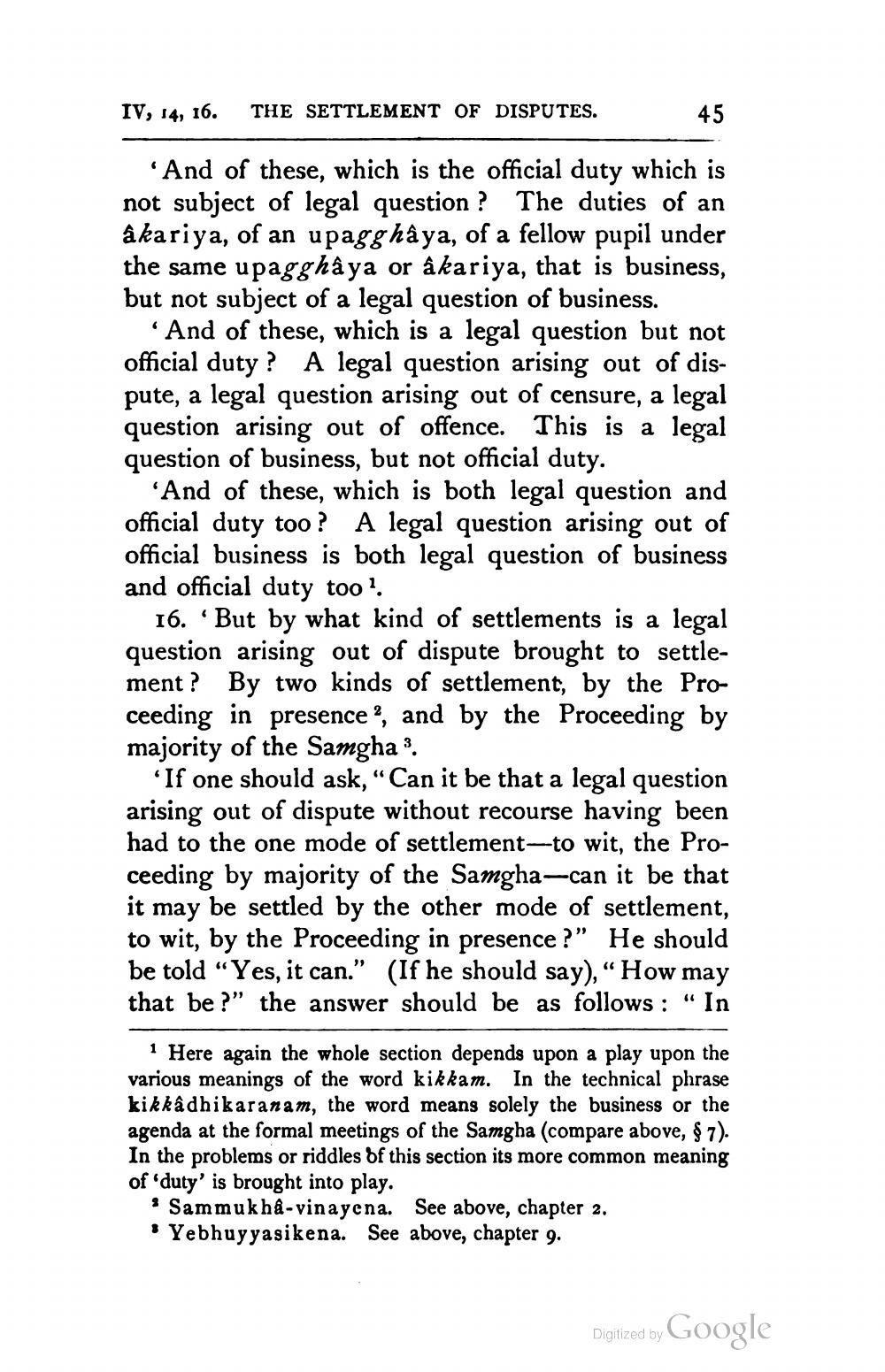________________
IV, 14, 16.
THE SETTLEMENT OF DISPUTES.
-
45
*And of these, which is the official duty which is not subject of legal question ? The duties of an akariya, of an upagghầya, of a fellow pupil under the same upagghầya or âkariya, that is business, but not subject of a legal question of business.
*And of these, which is a legal question but not official duty ? A legal question arising out of dispute, a legal question arising out of censure, a legal question arising out of offence. This is a legal question of business, but not official duty.
And of these, which is both legal question and official duty too? A legal question arising out of official business is both legal question of business and official duty too?
16. But by what kind of settlements is a legal question arising out of dispute brought to settlement? By two kinds of settlement, by the Proceeding in presence ?, and by the Proceeding by majority of the Samgha
'If one should ask, “Can it be that a legal question arising out of dispute without recourse having been had to the one mode of settlement-to wit, the Proceeding by majority of the Samgha-can it be that it may be settled by the other mode of settlement, to wit, by the Proceeding in presence ?" He should be told “Yes, it can.” (If he should say), “How may that be ?” the answer should be as follows: "In
1 Here again the whole section depends upon a play upon the various meanings of the word kikkam. In the technical phrase kikkâdhikaranam, the word means solely the business or the agenda at the formal meetings of the Samgha (compare above, $ 7). In the problems or riddles of this section its more common meaning of duty' is brought into play.
Sammukha - vinayena. See above, chapter 2. * Yebhuy yasikena. See above, chapter 9.
Digized by Google




